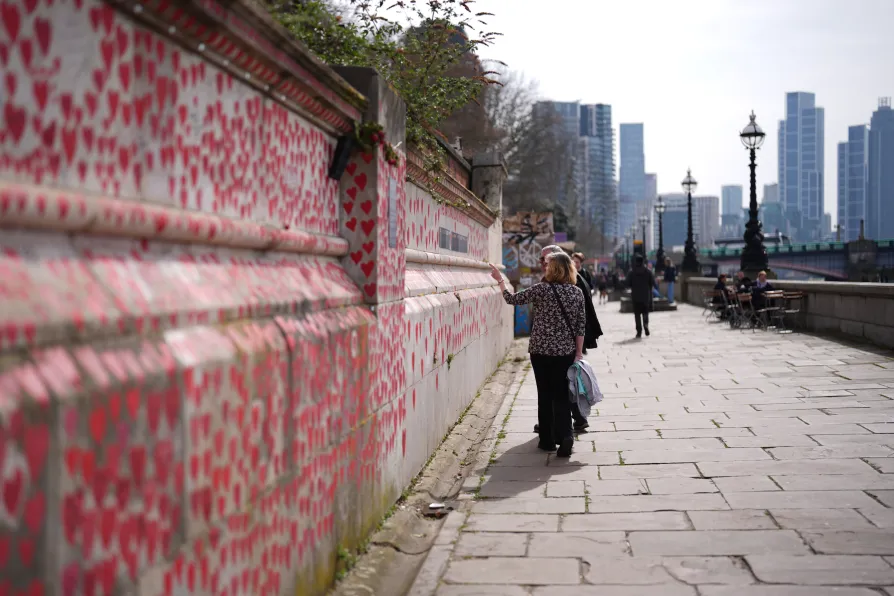
 People look at the Covid Memorial Wall, central London, ahead of the fifth anniversary of lockdown, March 21, 2025
People look at the Covid Memorial Wall, central London, ahead of the fifth anniversary of lockdown, March 21, 2025
BEREAVED relatives of care home residents who died during the Covid-19 pandemic have demanded truth and accountability as the ongoing public inquiry begins hearing evidence on the crisis in the adult social care sector.
Grieving families will give testimony this week as module six of the inquiry opens, examining the pandemic’s impact on publicly and privately funded adult social care in Britain.
The hearings, expected to run until the end of July, will scrutinise key decisions by the Westminster government and devolved administrations in the pandemic’s early stages. The module will explore hospital discharges into care homes, infection control, testing protocols, PPE availability, and restrictions on visitors and healthcare staff.
The first week includes a full-day session on Wednesday with Matt Hancock, who has appeared before the inquiry several times. The former health secretary, who resigned in 2021 after breaching distancing rules, is expected to face questions over the government’s care home policy.
At a May 2020 briefing, he claimed the government had “tried to throw a protective ring around our care homes.” But in later evidence he admitted that ring was not “unbroken” and acknowledged the anger many families felt.
Bereaved relatives have since called the claim a sickening lie and a joke. In the early months of the pandemic, patients were discharged from hospitals into care homes to free up NHS beds without a requirement for testing or isolation for asymptomatic individuals until mid-April 2020 — despite evidence of silent transmission.
Covid-19 Bereaved Families for Justice member Charlie Williams, whose 85-year-old father died in a care home in April 2020, said: “What happened in care homes during the pandemic was not a tragic accident: it was the result of decisions made at the highest levels of government.”
The group has written to inquiry chairwoman Baroness Heather Hallett raising concerns over key figures such as former prime minister Boris Johnson not being called to give evidence. Mr Williams called the omission “shocking,” adding: “They were at the centre of government when these choices were made, and [excluding] them is baffling and deeply damaging to any sense of justice.
“This is the moment for those responsible to finally tell the truth. We want answers. We want accountability. We want justice.”
Tomorrow’s session will hear from bereaved groups across Britain. Later in the week, representatives from the National Care Forum and Royal College of Nursing will also give evidence.













